Adverse Events
How to submit an article:
- Registered users can submit any published journal article that has a unique DOI (Digital Object Identifier) name or link to Research Hub.
- For example, you can paste the full DOI link:
https://doi.org/10.1109/5.771073or just the DOI name:10.1109/5.771073into the field above and click submit. - The person who is first to submit a valid article to Research Hub will forever be credited for it, and every article submission earns you +6 Research Points.
Related Topics
Published research studies are articles that present the findings of original research that has undergone a peer-review process and has been made publicly available in scholarly journals, books or other media.

The reporting quality of acupuncture-related traumatic adverse events: a systematic review of case studies in Korea
2024 Mar 13 BMC Complementary Medicine and Therapies Kim SA, Lee JS, Kim TH, Lee S, Lee JD, Kang JW
The study found that most case studies reporting acupuncture-related traumatic AEs in Korea suffer from insufficient and inappropriate reporting, making it difficult to establish causality and assess the appropriateness of acupuncture practice.
Review Article Case Report Systematic Review Acupuncture Adverse Events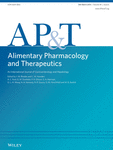
Systematic review and meta‐analysis: Foods, drinks and diets and their effect on chronic constipation in adults
2023 Oct 31 Alimentary Pharmacology & Therapeutics Van Der Schoot A, Katsirma Z, Whelan K, Dimidi E
Review Article Fruits Kiwifruit Rye Bread ConstipationFruits, especially kiwifruits, and rye bread can enhance bowel movements and help manage chronic constipation better than conventional dietary methods.

Effect of Guizhi Fuling Wan in primary dysmenorrhea: A randomized controlled trial
2023 May Journal of Ethnopharmacology Luo Y, Mao P, Chen P, Li C, Fu X, Zhuang M
Randomised Controlled Trial Period PainGui Zhi Fu Ling Wan significantly reduced menstrual pain in primary dysmenorrhea patients with heat-burning blood-stasis syndrome, without notable adverse effects.
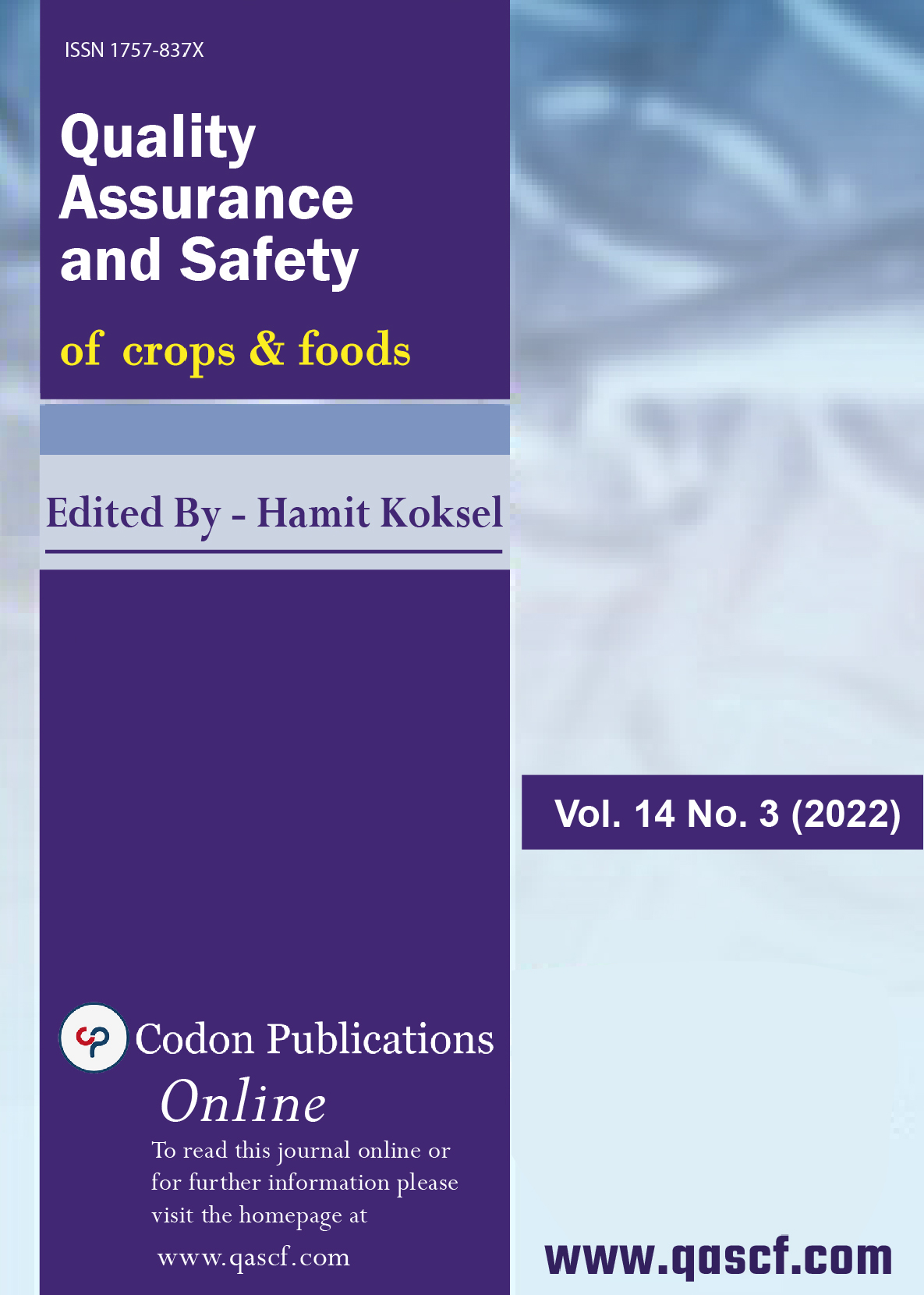
Efficacy and safety of Shaoyao Gancao Tang for restless leg syndrome: A systematic review and meta-analysis
2023 Feb 12 Quality Assurance and Safety of Crops & Foods Tian Z, Li R, Wei J, Huai W, Xia J, Jiang H, et al.
Meta-Analysis Systematic Review Shao Yao Gan Cao Tang Restless Legs SyndromeThe traditional Chinese herbal medicine Shaoyao Gancao Tang (SG-Tang) may be an effective and safe alternative treatment to relieve Restless Leg Syndrome.
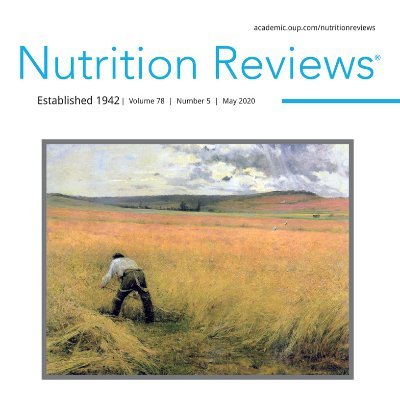
The effects of oral ferrous bisglycinate supplementation on hemoglobin and ferritin concentrations in adults and children: a systematic review and meta-analysis of randomized controlled trials
2023 Feb 02 Nutrition Reviews Fischer JAJ, Cherian AM, Bone JN, Karakochuk CD
Meta-Analysis Systematic Review Iron DeficiencyFerrous bisglycinate, an innovative amino acid iron chelate, showed increased absorption and fewer gastrointestinal side effects when used as an iron supplement in pregnant women.
Research insights are moderated by the Research Hub team and offer an at-a-glance overview of interesting research findings.

2023 Alimentary Pharmacology & Therapeutics
Fruits, especially kiwifruits, and rye bread can enhance bowel movements and help manage chronic constipation better than conventional dietary methods.
Review Article Constipation Fruits Kiwifruit Rye Bread
Systematic review and meta‐analysis: Foods, drinks and diets and their effect on chronic constipation in adults
Van Der Schoot A, Katsirma Z, Whelan K, Dimidi E

2023 Journal of Ethnopharmacology
Gui Zhi Fu Ling Wan significantly reduced menstrual pain in primary dysmenorrhea patients with heat-burning blood-stasis syndrome, without notable adverse effects.
Randomised Controlled Trial Period Pain
Effect of Guizhi Fuling Wan in primary dysmenorrhea: A randomized controlled trial
Luo Y, Mao P, Chen P, Li C, Fu X, Zhuang M

2023 Quality Assurance and Safety of Crops & Foods
The traditional Chinese herbal medicine Shaoyao Gancao Tang (SG-Tang) may be an effective and safe alternative treatment to relieve Restless Leg Syndrome.
Meta-Analysis Restless Legs Syndrome Shao Yao Gan Cao Tang
Efficacy and safety of Shaoyao Gancao Tang for restless leg syndrome: A systematic review and meta-analysis
Tian Z, Li R, Wei J, Huai W, Xia J, Jiang H, et al.

2023 Nutrition Reviews
Ferrous bisglycinate, an innovative amino acid iron chelate, showed increased absorption and fewer gastrointestinal side effects when used as an iron supplement in pregnant women.
Meta-Analysis Iron Deficiency
The effects of oral ferrous bisglycinate supplementation on hemoglobin and ferritin concentrations in adults and children: a systematic review and meta-analysis of randomized controlled trials
Fischer JAJ, Cherian AM, Bone JN, Karakochuk CD
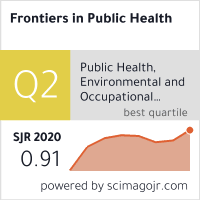
2022 Frontiers in Public Health
The study found that acupuncture as an adjuvant therapy for frozen-thawed embryo transfer (FET) in infertile women had positive effects on pregnancy outcomes.
Systematic Review Embryo Transfer Pregnancy
Effects of acupuncture on the pregnancy outcomes of frozen-thawed embryo transfer: A systematic review and meta-analysis
Zhu C, Xia W, Huang J, Zhang X, Li F, Yu X, et al.
Review Articles
Review articles summarise and critically evaluate the current state of research on a specific topic or field by synthesising multiple primary research studies.

The reporting quality of acupuncture-related traumatic adverse events: a systematic review of case studies in Korea
2024 Mar 13 BMC Complementary Medicine and Therapies Kim SA, Lee JS, Kim TH, Lee S, Lee JD, Kang JW
The study found that most case studies reporting acupuncture-related traumatic AEs in Korea suffer from insufficient and inappropriate reporting, making it difficult to establish causality and assess the appropriateness of acupuncture practice.
Review Article Case Report Systematic Review Acupuncture Adverse Events
Systematic review and meta‐analysis: Foods, drinks and diets and their effect on chronic constipation in adults
2023 Oct 31 Alimentary Pharmacology & Therapeutics Van Der Schoot A, Katsirma Z, Whelan K, Dimidi E
Review Article Fruits Kiwifruit Rye Bread ConstipationFruits, especially kiwifruits, and rye bread can enhance bowel movements and help manage chronic constipation better than conventional dietary methods.

Efficacy and safety of Shaoyao Gancao Tang for restless leg syndrome: A systematic review and meta-analysis
2023 Feb 12 Quality Assurance and Safety of Crops & Foods Tian Z, Li R, Wei J, Huai W, Xia J, Jiang H, et al.
Meta-Analysis Systematic Review Shao Yao Gan Cao Tang Restless Legs SyndromeThe traditional Chinese herbal medicine Shaoyao Gancao Tang (SG-Tang) may be an effective and safe alternative treatment to relieve Restless Leg Syndrome.

The effects of oral ferrous bisglycinate supplementation on hemoglobin and ferritin concentrations in adults and children: a systematic review and meta-analysis of randomized controlled trials
2023 Feb 02 Nutrition Reviews Fischer JAJ, Cherian AM, Bone JN, Karakochuk CD
Meta-Analysis Systematic Review Iron DeficiencyFerrous bisglycinate, an innovative amino acid iron chelate, showed increased absorption and fewer gastrointestinal side effects when used as an iron supplement in pregnant women.
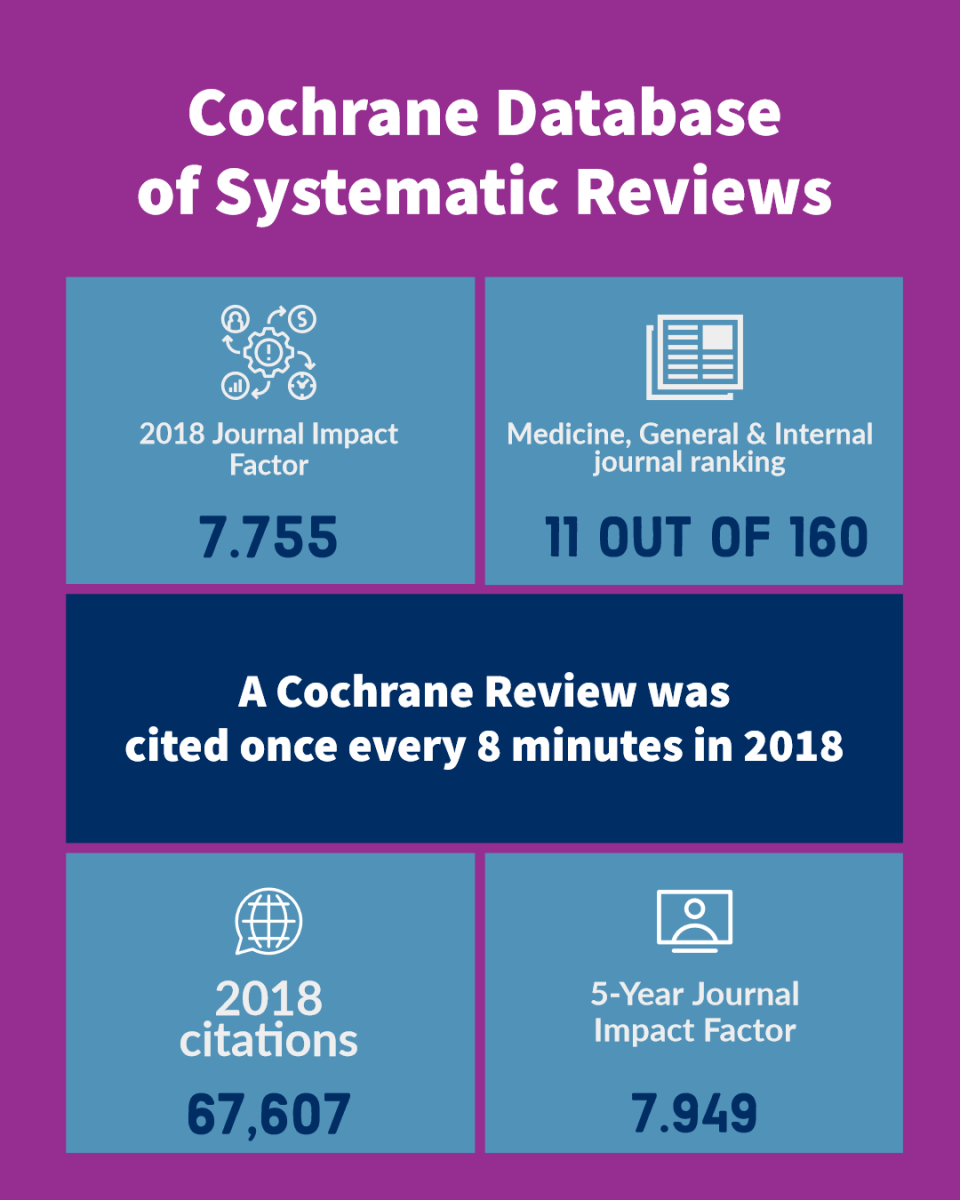
Calcium and vitamin D for increasing bone mineral density in premenopausal women
2023 Jan 27 Cochrane Database of Systematic Reviews Méndez-Sánchez L, Clark P, Winzenberg TM, Tugwell P, Correa-Burrows P, Costello R
Systematic Review Bone Mineral Density Vitamin D Osteoporosis CalciumClinical Trials
Clinical trials are research studies that involve people and are conducted to evaluate the safety and efficacy of new treatments or interventions, such as drugs, medical devices, or behavioural therapies.

Effect of Guizhi Fuling Wan in primary dysmenorrhea: A randomized controlled trial
2023 May Journal of Ethnopharmacology Luo Y, Mao P, Chen P, Li C, Fu X, Zhuang M
Randomised Controlled Trial Period PainGui Zhi Fu Ling Wan significantly reduced menstrual pain in primary dysmenorrhea patients with heat-burning blood-stasis syndrome, without notable adverse effects.
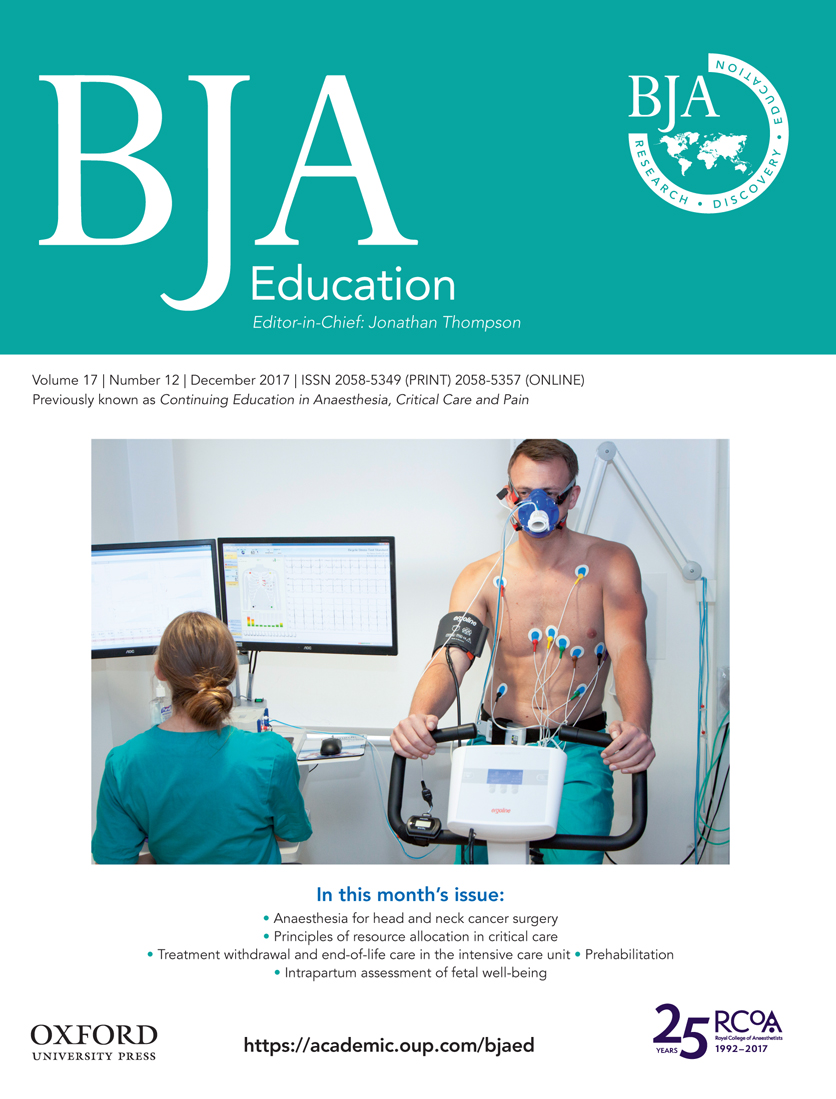
Multicentre randomised controlled clinical trial of electroacupuncture with usual care for patients with non-acute pain after back surgery
2021 Mar BJA Education Heo I, Shin BC, Cho JH, Ha IH, Hwang EH, Lee JH, et al.
In a multicenter, randomized, assessor-blinded active-controlled trial with 108 participants, those in the EA with UC group received EA and UC twice a week for 4 weeks, while the UC group received only UC. The primary outcome was the Visual Analog Scale (VAS) pain intensity score. Significant reductions were observed in both VAS and Oswestry Disability Index (ODI) scores in the EA with UC group compared to the UC group. No meaningful differences were found in EuroQol-5-dimension questionnaire (EQ-5D) scores and incidence of adverse events (AEs) between the groups. The study concludes that EA with UC treatment is more effective and relatively safe for non-acute LBP after back surgery, suggesting it as an integrated, conservative treatment option.
Randomised Controlled Trial Electroacupuncture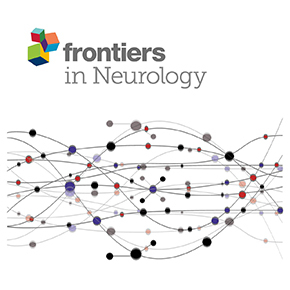
A Randomized Clinical Trial on Acupuncture Versus Best Medical Therapy in Episodic Migraine Prophylaxis: The ACUMIGRAN Study
2021 Jan 15 Frontiers in Neurology Giannini G, Favoni V, Merli E, Nicodemo M, Torelli P, Matrà A, et al.
Randomised Controlled Trial MigraineAcupuncture could be as effective as pharmacological drugs for migraine prevention, with improved patient compliance and fewer adverse events.

Bupi Yishen Formula Versus Losartan for Non-Diabetic Stage 4 Chronic Kidney Disease: A Randomized Controlled Trial
2021 Jan 29 Frontiers in Pharmacology Mao W, Yang N, Zhang L, Li C, Wu Y, Ouyang W, et al.
No significant between-group differences were observed in the incidence of adverse events. We conclude that BYF might have renoprotective effects among non-diabetic patients with CKD4 in the first 12 weeks and over 48 weeks, but longer follow-up is required to evaluate the long-term effects.
Randomised Controlled Trial Bupi Yishen Formula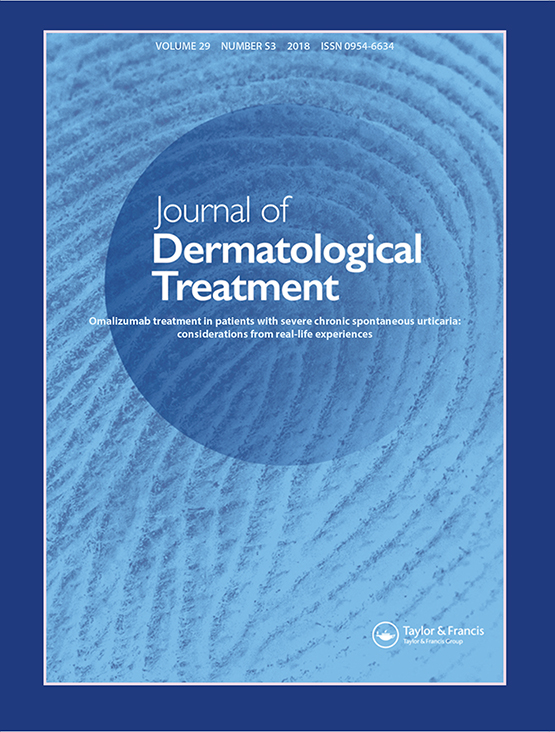
Efficacy and safety of Run Zao Zhi Yang capsule on chronic eczema: a multiple-center, randomized, double-blind, placebo-controlled clinical study
2019 Jun 20 Journal of Dermatological Treatment Huang D, Chen K, Zhang FR, Yang S, Guo Q, Xu JH, et al.
Run Zao Zhi Yang capsule (RZZYC) provides a good effect on the treatment of mild-to-moderate chronic eczema with a low recurrence and tolerable adverse events, and is a potential treatment that may be implemented in clinical practice.
Randomised Controlled Trial Run Zao Zhi Yang CapsuleStudy Protocols
Published study protocols are detailed plans that outline the objectives, methodology, statistical analyses, and organisation of a research study that have been made publicly available for others to review and use as a reference.
Presentation Slides

Review Article
Fruits, especially kiwifruits, and rye bread can enhance bowel movements and help manage chronic constipation better than conventional dietary methods.
Van Der Schoot A, Katsirma Z, Whelan K, Dimidi E

Randomised Controlled Trial
Gui Zhi Fu Ling Wan significantly reduced menstrual pain in primary dysmenorrhea patients with heat-burning blood-stasis syndrome, without notable adverse effects.
Luo Y, Mao P, Chen P, Li C, Fu X, Zhuang M

Meta-Analysis
The traditional Chinese herbal medicine Shaoyao Gancao Tang (SG-Tang) may be an effective and safe alternative treatment to relieve Restless Leg Syndrome.
Tian Z, Li R, Wei J, Huai W, Xia J, Jiang H, Xiong Y, Chen Y

Meta-Analysis
Ferrous bisglycinate, an innovative amino acid iron chelate, showed increased absorption and fewer gastrointestinal side effects when used as an iron supplement in pregnant women.
Fischer JAJ, Cherian AM, Bone JN, Karakochuk CD

Systematic Review
The study found that acupuncture as an adjuvant therapy for frozen-thawed embryo transfer (FET) in infertile women had positive effects on pregnancy outcomes.
Zhu C, Xia W, Huang J, Zhang X, Li F, Yu X, Ma J, Zeng Q

Systematic Review
Acupuncture, either solo or alongside conventional treatment, results in a significant improvement in symptoms and quality of life for chronic rhinosinusitis sufferers.
Lee B, Kwon CY, Park MY

Systematic Review
Peppermint oil proved more effective than placebo in treating irritable bowel syndrome symptoms, but with an increased rate of adverse events.
Ingrosso MR, Ianiro G, Nee J, Lembo AJ, Moayyedi P, Black CJ, Ford AC

Meta-Analysis
Probiotics combined with traditional Chinese medicine have shown higher rates of efficiency in the treatment of ulcerative colitis than when each is used individually.
Hu Y, Ye Z, She Y, Li L, Wu M, Qin K, Li Y, He H, Hu Z, Yang M, Lu F, Ye Q
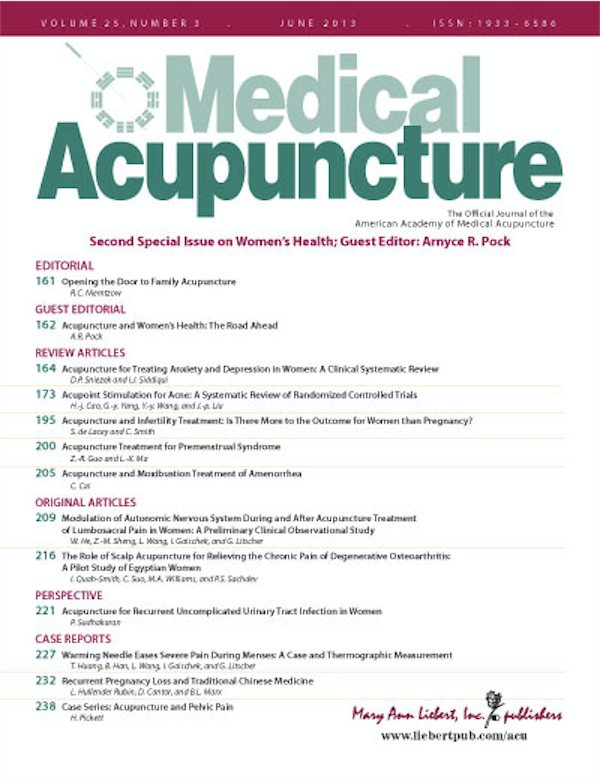
Systematic Review
Acupuncture displays potential as a safe and effective treatment for foot and ankle pain, providing pain relief and functional improvement.
Trinh K, Belski N, Zhou F, Kuhad A, Luk D, Youn E

Systematic Review
Turmeric curcuminoids are associated with better pain relief than NSAIDs in knee osteoarthritis.
An-Fang Hsiao, Yi-Chieh Lien, I-Shiang Tzeng, Chien-Ting Liu, Sheng-Hsun Chou, Yi-Shiung Horng

Randomised Controlled Trial
Acupuncture could be as effective as pharmacological drugs for migraine prevention, with improved patient compliance and fewer adverse events.
Giannini G, Favoni V, Merli E, Nicodemo M, Torelli P, Matrà A, Giovanardi CM, Cortelli P, Pierangeli G, Cevoli S

Network Pharmacology
Kushen-based traditional Chinese medicine formulations show considerable potential and effectiveness in treating ulcerative colitis with meaningful improvement in clinical remission rate.
Chen M, Ding Y, Tong Z

Systematic Review
Acupuncture shows promise in treating postcholecystectomy syndrome.
Yin Z, Xiao Q, Xu G, Cheng Y, Yang H, Zhou J, Fu Y, Chen J, Zhao L, Liang F
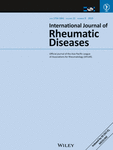
Systematic Review
Avocado-soybean unsaponifiables treatment is effective in reducing knee osteoarthritis symptoms without increasing adverse events, contrary to those with hip osteoarthritis.
Simental‐Mendía M, Sánchez‐García A, Acosta‐Olivo CA, Vilchez‐Cavazos F, Osuna‐Garate J, Peña‐Martínez VM, Simental‐Mendía LE

Meta-Analysis
Polyunsaturated fatty acids treatment shows improved outcomes for patients with nonspecific typical dry eye disease, in particular as a short-term intervention.
Chi SC, Tuan HI, Kang YN

Meta-Analysis
Traditional Chinese Medicine (TCM), when used alongside Western Medicine (WM), seems to improve treatment outcomes for Crohn's disease.
Wang Y, Li M, Zha AS

Systematic Review
Chinese herbal medicine improved depression symptoms and severity compared to antidepressants for postpartum depression.
Yang L, Di YM, Shergis JL, Li Y, Zhang AL, Lu C, Guo X, Xue CC

Review Article
Traditional Chinese Medicine offers potential benefits like pain relief and functional improvement for knee osteoarthritis with few adverse events.
Yang M, Jiang L, Wang Q, Chen H, Xu G

Systematic Review
Tai Chi could be an effective alternative and/or complementary approach to existing therapies for people with fatigue.
Yu Xiang, Liming Lu, Xiankun Chen, Zehuai Wen
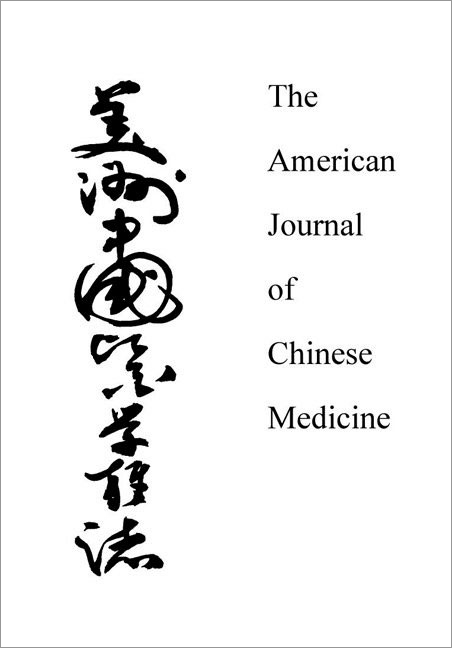
Systematic Review
Our results indicate that acupuncture is an effective treatment for obesity both alone and together with lifestyle modification.
Fang S, Wang M, Zheng Y, Zhou S, Ji G.
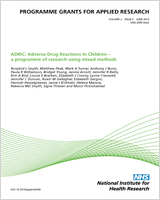
Randomised Controlled Trial
For patients continuing to experience depression in primary care, there are statistically significant benefits at 3 months associated with both acupuncture and counselling interventions when provided as adjuncts to usual care.
MacPherson H, Vickers A, Bland M, et al.

Systematic Review
Acupuncture may have beneficial effects on improving dependency, global neurological deficiency, and some specific neurological impairments for people with stroke in the convalescent stage, with no obvious serious adverse events.
Yang A, Wu HM, Tang JL, Xu L, Yang M, Liu GJ.

Systematic Review
The review found limited consistent evidence supporting the effectiveness of acupuncture for relieving menstrual pain compared to sham treatments or other interventions.
Smith CA, Armour M, Zhu X, Li X, Lu ZY, Song J

Systematic Review
Current evidence supports acupuncture as an effective treatment for chronic prostatitis/chronic pelvic pain syndrome-induced symptoms, particularly in relieving pain.
Qin Z, Wu J, Zhou J, Liu Z.
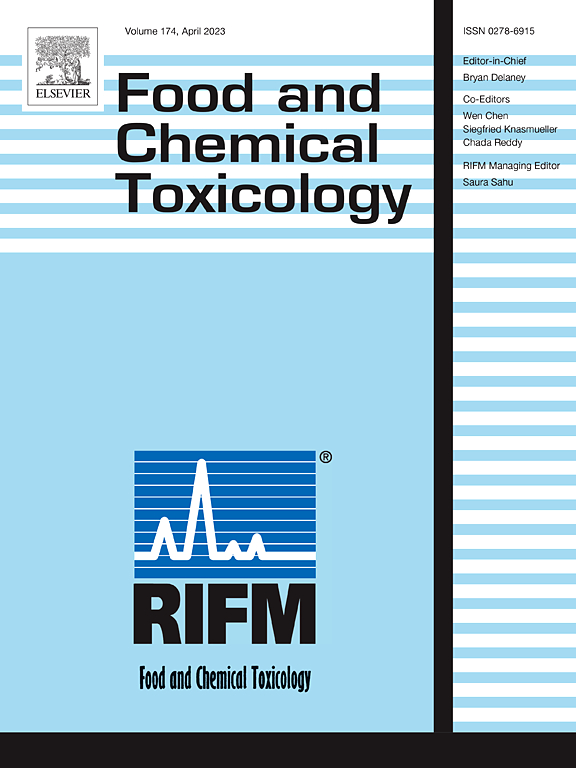
Randomised Controlled Trial
Green tea extract consumption can potentially cause mild adverse reactions, notably nausea, skin conditions, and increased alanine aminotransferase levels.
Dostal AM, Samavat H, Bedell S, Torkelson C, Wang R, Swenson K, Le C, Wu AH, Ursin G, Yuan JM, Kurzer MS
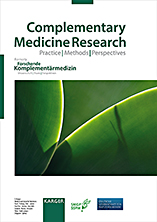
Systematic Review
Acupuncture therapies demonstrate some potential benefits in treating psoriasis vulgaris, despite conflictions in individual study results.
Coyle M, Deng J, Zhang AL, Yu J, Guo X, Xue CC, Lu C

Systematic Review
Acupuncture during pregnancy appears to be associated with few adverse events when correctly applied.
Park J, Sohn Y, White AR, Lee H.

Systematic Review
Acupuncture and herbal medicine show promise in alleviating premenstrual syndrome and premenstrual dysphoric disorder symptoms, with over 50% relief and proven safety.
Jang SH, Kim DI, Choi MS
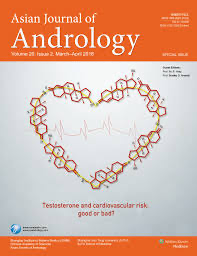
Systematic Review
Chinese herbal medicine appears to be more effective than Western medication in improving quality of life and reducing prostate volume in benign prostatic hyperplasia patients.
Ma CH, Lin WL, Lui SL, Cai XY, Wong VT, Ziea E, Zhang ZJ

Systematic Review
Most Chinese medical herbs in the included studies showed similar effects to antiviral drugs in preventing or treating influenza.
Jiang L, Deng L, Wu T.

Systematic Review
Limited evidence supporting the benefit of acupressure in alleviating menstrual pain and reducing symptoms.
Jiang H, Ni S, Li J, Liu M, Li J, Cui X, Zhang B
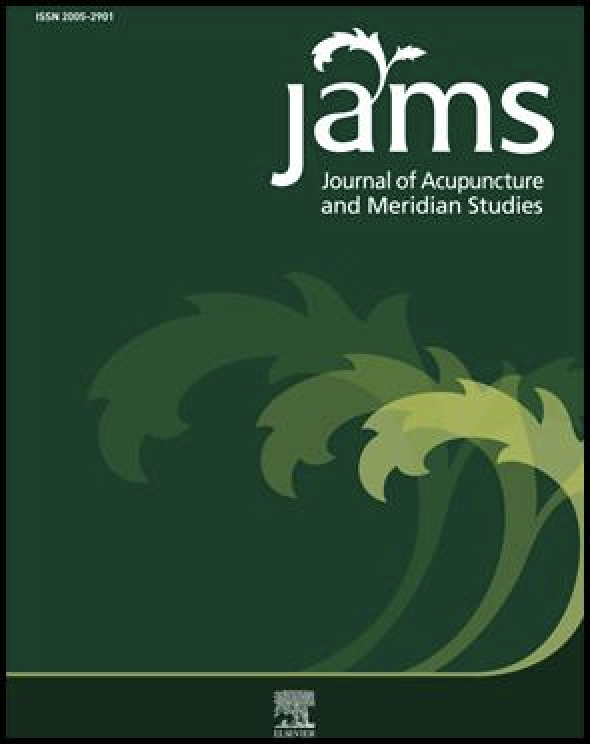
Cohort Study
Gui-zhi-fu-ling-wan, a traditional Chinese medicine, can effectively alleviate hot flashes in young patients in a safe manner.
Cho KH, Kim YS, Jung WS, Kim TH
Executive Summary
Write an executive summary in the form of a blog article on the topic of "Research into Chinese medicine treatment for Adverse Events" summarising the research below and using language that can be easily understood by patients and avoiding medical jargon using a professional and caring tone of voice.
Write an executive summary in the form of a blog article on the topic of "Researched Chinese medicine treatments for Adverse Events" summarising the research below in an objective and easy to understand way, and using language that can be easily understood by patients. Group the article into Chinese medicine treatments first, followed by nutrition and other treatments. Avoid using medical jargon and use a professional and caring tone of voice.
Write me a concise but easy to understand executive summary on the topic of "Chinese medicine treatments for Adverse Events" based on the following research that I will give you. Your summary should be 2 paragraphs long in Australian English spelling and include references to the studies.
A Review Article published in 2023 in the journal Alimentary Pharmacology & Therapeutics found that Fruits, especially kiwifruits, and rye bread can enhance bowel movements and help manage chronic constipation better than conventional dietary methods. An exhaustive analysis was conducted incorporating a multitude of studies, including randomized controlled trials and uncontrolled trials, identified through electronic databases till 12th July 2023. The effect of various foods, drinks, and diets on characteristics such as stool output, gut transit time, symptoms, quality of life, adverse events, and compliance in adults with chronic constipation was inspected. The study also examined the response to different treatments and included a variety of foods such as kiwifruit, high-mineral water, prunes, rye bread, mango, fig, cereal, oat bran, yoghurt, water supplementation, prune juice, and high-fibre or no-fibre diets. The synthesized data revealed that the consumption of fruits, particularly kiwifruits, and rye bread led to a higher stool frequency when compared to standard treatments like psyllium or white bread. High-mineral water also proved more effective regarding response to treatment than low-mineral water. On the other hand, no distinctive difference was identified for prunes when set against psyllium as a treatment option. Overall, the study insightfully suggests dietary modifications as a means to manage chronic constipation, emphasizing the potential of fruits such as kiwifruits and rye bread.
A Randomised Controlled Trial published in 2023 in the journal Journal of Ethnopharmacology found that Gui Zhi Fu Ling Wan significantly reduced menstrual pain in primary dysmenorrhea patients with heat-burning blood-stasis syndrome, without notable adverse effects. In the methodology, a randomized, double-blinded, placebo-controlled trial was conducted. Eligible patients suffering from primary dysmenorrhea with heat-burning blood-stasis syndrome were randomly placed into two groups – one received Guizhi Fuling Wan, the other a placebo, administered twice daily across three menstrual cycles, with a 3-month follow-up. The primary measurement was the change in pain intensity from the beginning to the 6th month, gauged by using a Visual Analog Scale. In the discussion of results, data showed that the pain intensity (measured using Visual Analog Scale) significantly decreased in the Guizhi Fuling Wan group compared to the placebo over the 6 month period. Secondary measurements also indicated a greater reduction in Cox Menstrual Symptom Scale, Self-rating Anxiety Scale, and traditional Chinese medicine syndrome scores in the Guizhi Fuling Wan group compared to the placebo. However, there was no significant difference between the two groups when measuring the Self-rating Depression Scale. Furthermore, no serious adverse events were observed during the trial.
A Meta-Analysis published in 2023 in the journal Quality Assurance and Safety of Crops & Foods found that The traditional Chinese herbal medicine Shaoyao Gancao Tang (SG-Tang) may be an effective and safe alternative treatment to relieve Restless Leg Syndrome. The methodology used for this study involved a systematic review and meta-analysis of Randomized Clinical Trials (RCTs) assessing the efficacy and safety of SG-Tang treatment for Restless Leg Syndrome. Databases such as the Cochrane Library, PubMed, EMBASE, Web of Science, Chinese Biological Medicine Database, China National Knowledge Infrastructure, Wanfang Database, and VIP Information Database were searched. The primary and secondary outcome measurements looked at were the total effective rate, the International Restless Legs Syndrome Study Group Rating Scale for Severity of Restless Legs Syndrome, the Pittsburgh Sleep Quality Index, and the incidence of adverse events. The results of the study indicated that SG-Tang treatment led to significant improvements compared to conventional medications; it increased the total effective rate and lifted scores on the Severity of Restless Legs Syndrome and Sleep Quality Indices, while also lessening the incidence of adverse events. However, these conclusions should be interpreted with caution due to the limited data and the methodological quality of the included studies.
A Meta-Analysis published in 2023 in the journal Nutrition Reviews found that Ferrous bisglycinate, an innovative amino acid iron chelate, showed increased absorption and fewer gastrointestinal side effects when used as an iron supplement in pregnant women. Methodology: The team carried out a systematic review and meta-analysis of randomized controlled trials (RCTs) through a comprehensive survey of electronic databases and grey literature up to July 17, 2020, to ascertain the impacts of ferrous bisglycinate versus other iron supplements on hemoglobin and ferritin levels and gastrointestinal (GI) adverse events. Exercises were undertaken to calculate averages from these trials which involved pregnant women and children and these average estimates were communicated as standardized mean differences. The rate of occurrence for GI adverse events was determined using Poisson generalized linear mixed-effects models. Studies involving other subjects (men and non-pregnant women) were evaluated on an individual basis. Discussion of Results: The results reveal fermentable bisglycinate demonstrating an advantage over other iron supplements. Among the pregnant women involved in the trials, those using this supplement had higher hemoglobin levels after 4-20 weeks of administration. Additionally, these women reported reduced GI adverse events. Although the observed increase in ferritin levels was not marked as significant, it depicted an upward trend. However, no notable differences were detected in either hemoglobin or ferritin concentrations in children using ferrous bisglycinate.
A Systematic Review published in 2022 in the journal Frontiers in Public Health found that The study found that acupuncture as an adjuvant therapy for frozen-thawed embryo transfer (FET) in infertile women had positive effects on pregnancy outcomes. The study investigates the effects of acupuncture as supplementary therapy for frozen-thawed embryo transfer (FET) in infertile women. It finds significant positive impacts on clinical pregnancy rate, biochemical pregnancy rate, endometrial thickness, and pattern. However, the evidence quality is considered unsatisfactory, prompting a call for more robust research and refined acupuncture protocols.
A Systematic Review published in 2022 in the journal Evidence-Based Complementary and Alternative Medicine found that Acupuncture, either solo or alongside conventional treatment, results in a significant improvement in symptoms and quality of life for chronic rhinosinusitis sufferers. To evaluate the effectiveness of acupuncture in treating chronic rhinosinusitis, this study utilized 10 randomized controlled clinical trials, found through searching electronic databases. Through these trials, the posttreatment severity of chronic rhinosinusitis was measured, primarily focusing on the Total Effective Rate and patient ratings on the Visual Analogue Scale. From the analysis of the trial data, it was revealed that acupuncture, when used alone or in combination with conventional treatment methods, led to significant improvements in the severity of chronic rhinosinusitis symptoms and the quality of life of patients. This was indicated by enhanced ratings on the Visual Analogue Scale and the Total Effective Rate. It was also noted that the incidence of adverse events was similar across treatment methods. Despite these promising results, the researchers found a high degree of clinical heterogeneity across the included trials, as well as generally moderate-to-low quality of evidence.
A Systematic Review published in 2022 in the journal Alimentary Pharmacology & Therapeutics found that Peppermint oil proved more effective than placebo in treating irritable bowel syndrome symptoms, but with an increased rate of adverse events. In evaluating the effectiveness and safety of peppermint oil for irritable bowel syndrome, the researchers searched medical literature for randomised controlled trials involving peppermint oil treatments in IBS. A systematic review and analysis included trials up to the date of April 2nd, 2022. The team assessed the efficacy and safety of the peppermint oil treatment based on various factors including effect on global IBS symptoms and abdominal pain along with incidence of adverse events or gastro-oesophageal reflux. From the literature review, 10 suitable randomised control trials were identified, encompassing a total of 1030 patients. The results showed that peppermint oil performed better than a placebo in lessening overall irritable bowel syndrome symptoms and reducing abdominal pain. However, this was coupled with a higher rate of recorded adverse events in patients who were administered peppermint oil. Despite the positive performance of peppermint oil over placebo, the evidence quality considered for this conclusion was very low.
A Meta-Analysis published in 2022 in the journal Frontiers in Pharmacology found that Probiotics combined with traditional Chinese medicine have shown higher rates of efficiency in the treatment of ulcerative colitis than when each is used individually. For the methodology, the researchers utilized a comprehensive search of multiple databases such as Pubmed, EMBASE, Cochrane library, China Academic Journals, Wan-fang database, Chinese biomedical literature service system, and Chinese Science and Technology Journals. They designed subgroup analysis in alignment with distinct control drugs, treatment lengths, and types of probiotics, using Review Manager software for statistical analysis. In discussing the results, the study analyzed fourteen original studies containing over a thousand patients. It concluded that the combination of probiotics with traditional Chinese medicine was more effective than 5-aminosalicylic acid, probiotics, or traditional Chinese medicine used individually. Further, this combination was found to suppress intestinal inflammation, diminish the frequency of recurrence, and lower the occurrence of adverse events. The results indicated that a mixture of different probiotics was more effective than a single strain.
A Systematic Review published in 2021 in the journal Medical Acupuncture found that Acupuncture displays potential as a safe and effective treatment for foot and ankle pain, providing pain relief and functional improvement. The researchers gathered Randomized Controlled Trials (RCTs) from 6 major English databases, and relevant systematic reviews manually via Google Scholar. The selected RCTs studied the comparison of acupuncture with various types of sham acupuncture and nonactive or waitlist controls in terms of pain intensity, functional status, and general quality of life. All procedures including study screening, data extraction, risk of bias assessment, and quality assessment were conducted independently. Instead of performing a quantitative synthesis, the team opted for a narrative synthesis as quantitative pooling wasn't fit for the collected data. Four RCTs involving a total of 211 participants were included. Due to distinct clinical heterogeneity involving all the outcomes, the team did not conduct a quantitative analysis. Using a quality grading system, all outcomes were rated as supported by low or very low-quality evidence. Despite this, the study still showed acupuncture is potentially effective for treating participants with plantar fasciitis or Achilles tendinopathy, in terms of pain relief and functional status improvement, over short- and intermediate-term follow-ups. Notably, no adverse events linked to acupuncture use were reported.
A Systematic Review published in 2021 in the journal Complementary Therapies in Medicine found that Turmeric curcuminoids are associated with better pain relief than NSAIDs in knee osteoarthritis. The meta-analysis results showed that curcuminoids were significantly more effective than comparators regarding visual analogue scale (VAS) and Western Ontario and McMaster Universities Arthritis Index (WOMAC) pain scores. However, no significant difference in pain relief or AEs between the high-dose (daily dose ≥1000 mg or total dose ≥42 gm) and low-dose (daily dose <1000 mg or total dose <42 gm) curcuminoid treatments was observed. When comparing curcumininoids versus NSAIDs, a significant difference in VAS pain was found. For AE analysis, three of our included studies used NSAIDs as comparators, with all reporting higher AE rates in the NSAID group, though significance was reached in only one study.
A Randomised Controlled Trial published in 2021 in the journal Frontiers in Neurology found that Acupuncture could be as effective as pharmacological drugs for migraine prevention, with improved patient compliance and fewer adverse events. In the study, patients experiencing migraines who hadn't undergone preventive treatment in the prior 3 months were randomly divided into two groups. Group A underwent 12 acupuncture sessions, while Group B received a range of suitable medications for each individual. The frequency of headaches was compared at the beginning and end of treatment, and both groups were assessed after three and six months post-treatment. Results highlighted that both treatments led to a significant decrease in headache frequency. Of the patients, around 34% saw a 50% reduction of headache days post-treatment. The improvements seen at the end of treatment were maintained in 57.3% of patients three months after and in 38.8% of patients six months after, notably in the acupuncture group. Based on this data, acupuncture can be seen as an effective alternative for migraine prophylaxis.
A Network Pharmacology published in 2020 in the journal Frontiers in Pharmacology found that Kushen-based traditional Chinese medicine formulations show considerable potential and effectiveness in treating ulcerative colitis with meaningful improvement in clinical remission rate. In the study, researchers sourced multiple databases, specifically PubMed, EMBASE, Chinese Biomedical Literature database, China National Knowledge Infrastructure database, Chongqing VIP Information database, and Wanfang database, to find articles published from January 2000 to July 2020. These articles focused on randomized controlled trials using Kushen-based traditional Chinese medicine formulations for ulcerative colitis treatment. Additionally, they utilized a network pharmacology approach to discern the potential pathways of Kushen's influence against ulcerative colitis. Regarding the results, eight randomized controlled trials encompassing a total of 983 subjects were analyzed. When compared to subjects treated with standard therapy, patients who underwent treatment with Kushen-based formulations showed an increased clinical remission rate alongside a decreased incidence of adverse events. A detailed component-target-pathway network associated with Kushen treatment against ulcerative colitis was established. This highlighted five primary components, three primary targets, and one crucial therapeutic pathway.
A Systematic Review published in 2020 in the journal Evidence-Based Complementary and Alternative Medicine found that Acupuncture shows promise in treating postcholecystectomy syndrome. Acupuncture may offer relief for Postcholecystectomy Syndrome (PCS), as revealed by a systematic review and meta-analysis of 14 RCTs with 1593 participants. While acupuncture combined with conventional medicine didn't significantly reduce pain, it significantly lowered postoperative nausea and vomiting incidence and improved gastrointestinal recovery compared to conventional medicine alone. However, the study acknowledges the limitations of included RCTs, including small sample sizes and low methodological quality. Further high-quality trials conforming to standardized reporting are needed to validate these findings. Adverse events related to acupuncture were reported as mild and acceptable. Further research is crucial for definitive conclusions regarding acupuncture's efficacy for PCS.
A Systematic Review published in 2019 in the journal International Journal of Rheumatic Diseases found that Avocado-soybean unsaponifiables treatment is effective in reducing knee osteoarthritis symptoms without increasing adverse events, contrary to those with hip osteoarthritis. To assess avocado-soybean unsaponifiables (ASU) effectiveness and safety, a systematic review and meta-analysis of randomized controlled trials involving patients with hip or knee osteoarthritis was conducted. Various scientific databases, including Medline, SCOPUS, Web of Science, and Google Scholar, were thoroughly searched for suitable trials. Selection criteria consisted of randomized placebo-controlled trials wherein the effect of orally administered ASU on knee or hip osteoarthritis symptoms were evaluated, primarily using the Lequesne index, visual analog scale, and joint space width. The meta-analysis revealed a significant reduction in pain as assessed by the visual analog scale for those under Avocado-soybean unsaponifiables therapy, particularly for patients with knee osteoarthritis, indicated by a decrease in both the visual analogue scale and Lequesne index. However, no such significant effect was found for patients with hip osteoarthritis. In terms of safety, there were no significant differences in adverse events between patients receiving ASU and those given a placebo, confirming ASU's relative safety as a treatment option.
A Meta-Analysis published in 2019 in the journal Nutrients found that Polyunsaturated fatty acids treatment shows improved outcomes for patients with nonspecific typical dry eye disease, in particular as a short-term intervention. In this research, randomized clinical trials were searched from various databases, which included Cochrane Library, EMBASE, PubMed, and Web of Science, all investigating the impact of polyunsaturated fatty acids (PUFAs) on patients with nonspecific typical dry eye disease. The trials were conducted until March 2019. A total of thirteen eligible clinical trials with 1782 patients were eventually included. Specific data points such as tear breakup time, Schirmer's test, osmolarity, and ocular surface disease index were extracted by two independent reviewers. A pairwise meta-analysis was undertaken using means and standard deviations under a random-effects model for various outcomes. This research demonstrated that patients who received treatment solely with PUFAs showed significant improvements in specific observations such as tear breakup time, Schirmer's test scores, osmolarity, and ocular surface disease index when compared with patients who only received a placebo. However, it was noted that the positive effects of PUFAs on tear breakup time and ocular surface disease index scores decreased as the duration of treatment increased. Despite this, PUFAs were found to be effective for treating nonspecific typical dry eye disease, especially as a short-term treatment option and displayed few adverse events. The study therefore concluded that PUFA supplements could be beneficial to patients with nonspecific typical dry eye disease who are not using other types of eye medication concurrently.
A Meta-Analysis published in 2019 in the journal Evidence-Based Complementary and Alternative Medicine found that Traditional Chinese Medicine (TCM), when used alongside Western Medicine (WM), seems to improve treatment outcomes for Crohn's disease. The methodology used in this study was a comprehensive search of several significant scientific and medical databases including Pubmed, Embase, Medline, Web of Science, among others, up until October 2018. The researchers assessed the quality of randomized clinical trials that met their specific inclusion criteria and extracted data according to the Cochrane Review Handbook v5.0 guidelines. They analyzed the outcomes using the software Stata 12.0 for a meta-analysis, focusing on twelve selected randomized controlled trials. The trials were, however, deemed of low methodological quality. The study looked at the outcomes of Traditional Chinese and Western Medicine treatment in comparison to Western Medicine alone, across multiple efficacy indicators. This review found that TCM used as an adjunctive therapy to WM was superior to WM alone in inducing remission in Crohn's patients. The results were noticeably better in terms of overall effective rate, maintenance of remission, reduction of C-reactive protein and erythrocyte sedimentation rate, and in reducing clinical scores. Additionally, the frequency of adverse events decreased. Mucosal healing improved in both the TCM-WM and the WM only groups, but no notable differences were present between these two approaches. Still, there was some sign of publication bias in the studies towards efficacy, adverse reactions, mucosal healing, and recurrence rate.
A Systematic Review published in 2018 in the journal Complementary Therapies in Medicine found that Chinese herbal medicine improved depression symptoms and severity compared to antidepressants for postpartum depression. This systematic review provides up-to-date evidence of acupuncture and Chinese herbal medicine for postpartum depression. We found Chinese herbal medicine improved depression symptoms and severity compared to antidepressants. Acupuncture was neither superior nor inferior to sham or antidepressants. Adverse events were similar to sham/placebo and less than antidepressants. The full extent of the effect remains inconclusive due to poor quality extant randomized controlled trials.
A Review Article published in 2017 in the journal PLOS One found that Traditional Chinese Medicine offers potential benefits like pain relief and functional improvement for knee osteoarthritis with few adverse events. Five electronic databases were searched up until April 2016 to study the efficacy and safety of Traditional Chinese Medicine (TCM) for treating knee osteoarthritis. The methodological quality of the included studies was evaluated using the Assessment of Multiple Systematic Reviews (AMSTAR) and the Risk of Bias in Systematic reviews (ROBIS) tools. The quality of evidence was determined using the Grading of Recommendations, Assessment, Development and Evaluations (GRADE) approach. The findings indicate that TCM potentially benefits patients with knee osteoarthritis through pain relief, functional improvement, and few adverse effects. However, deficiencies were found in the methodological quality of the reviews, such as the absence of an a-priori protocol or protocol registration, and an incomplete literature search. Furthermore, none of the studies offered a list of excluded studies. Overall, the quality of evidence in the systematic reviews was deemed poor, ranging from 'very low' to 'low'. This shortcoming was primarily due to a substantial risk of bias in the original trials, inconsistencies, and imprecision in the outcomes. Though TCM generally appears to be effective for knee osteoarthritis treatment, the evidence is not strong enough due to methodological flaws. Therefore, these findings should be approached cautiously in a clinical setting.
A Systematic Review published in 2017 in the journal PLOS One found that Tai Chi could be an effective alternative and/or complementary approach to existing therapies for people with fatigue. The overall aggregated result showed that Tai Chi achieved better gains in relieving fatigue compared to the control interventions. For the subgroup analysis, Tai Chi was more beneficial for cancer-related fatigue. However, for multiple sclerosis-related fatigue, age-related fatigue, there were no significant difference between two groups. Tai Chi improved fatigue greater than conventional treatment and low-impact exercise control, while no difference was observed comparing with health education control. The length between ≤ 3 months and > 3 months and the frequency between < 5 times a week and ≥ 5 times a week, the pooled results indicated that they all have significant difference. However, in the duration≤ 60 minutes, Tai Chi was improved fatigue greater. In the duration > 60 minutes, there were no difference between two groups. So, the duration≤ 60 minutes may be better than > 60 minutes.
A Systematic Review published in 2017 in the journal The American Journal of Chinese Medicine found that Our results indicate that acupuncture is an effective treatment for obesity both alone and together with lifestyle modification. The objective of this study was to assess the efficacy of acupuncture treatment alone and in combination with lifestyle modification. We searched the MEDLINE, EMBASE, CENTRAL and Chinese Biomedical Literature Databases for relevant publications available as of 24 October 2015 without language restriction. Eligible studies consisted of randomized controlled trials for acupuncture with comparative controls. A total of 23 studies were included with 1808 individuals. We performed meta-analyses of weighted mean differences based on a random effect model. Acupuncture exhibited a mean difference of body mass index reduction of 1.742 kg/m2 and 1.904 kg/m2 when compared with untreated or placebo control groups and when lifestyle interventions including basic therapy of both treatment and control groups. Adverse events reported were mild, and no patients withdrew because of adverse effects.
A Randomised Controlled Trial published in 2017 in the journal Programme Grants for Applied Research found that For patients continuing to experience depression in primary care, there are statistically significant benefits at 3 months associated with both acupuncture and counselling interventions when provided as adjuncts to usual care. In this report we present what is to our knowledge the first study to rigorously evaluate the clinical and economic impacts of acupuncture and counselling for patients who are representative of those who continue to experience depression in primary care. Our evidence on acupuncture compared with usual care and counselling compared with usual care shows that both treatments are associated with a statistically significant reduction in symptoms of depression in the short to medium term, with no reported serious adverse events related to treatment. Acupuncture is cost-effective compared with counselling or usual care alone, although the ranking of counselling and acupuncture depends on the relative costs of delivering these interventions.
A Systematic Review published in 2016 in the journal Cochrane Database of Systematic Reviews found that Acupuncture may have beneficial effects on improving dependency, global neurological deficiency, and some specific neurological impairments for people with stroke in the convalescent stage, with no obvious serious adverse events. Although acupuncture may have positive effects in stroke rehabilitation and there were no reported serious adverse events, the small number of low quality studies and the probability of publication bias means that there was insufficient evidence to support the routine use of acupuncture for people with subacute or chronic stroke.
A Systematic Review published in 2016 in the journal Cochrane Database of Systematic Reviews found that The review found limited consistent evidence supporting the effectiveness of acupuncture for relieving menstrual pain compared to sham treatments or other interventions. This passage provides a summary of the main results of a review on the effectiveness of acupuncture and acupressure in managing primary dysmenorrhoea (menstrual pain) in women. The review includes 42 trials involving 4640 women. The primary outcome, which is pain relief, showed no consistent difference between women receiving acupuncture and those receiving a sham control (simulated treatment). However, limited evidence suggested a benefit for acupuncture compared to NSAIDs, Chinese herbs, and other treatments. Acupressure had limited evidence of benefit compared to a sham control. Secondary outcomes, including menstrual symptoms and quality of life, did not consistently show a benefit from acupuncture. The trials had various limitations, such as incomplete reporting of outcomes, short follow-up periods, and variations in eligibility criteria. The quality of reporting was generally poor, and many trials were at high risk of bias. The overall quality of evidence for pain relief and menstrual symptoms was considered low. Other reviews on this topic found promising evidence for acupuncture, but results were influenced by methodological flaws in the trials.
A Systematic Review published in 2016 in the journal Medicine found that Current evidence supports acupuncture as an effective treatment for chronic prostatitis/chronic pelvic pain syndrome-induced symptoms, particularly in relieving pain. Real acupuncture was superior to sham acupuncture in improving symptoms (pain, voiding) and quality of life (Qof) domain subscores. Compared to sham acupuncture and medicine, acupuncture appears to be more effective at improving the global assessment. Two trials found that there is no significant difference between acupuncture and sham acupuncture in decreasing the IPSS score. Acupuncture failed to show more favorable effects in improving both symptoms and the Qof domain compared with medicine. Overall, current evidence supports acupuncture as an effective treatment for CP/CPPS-induced symptoms, particularly in relieving pain. Based on the meta-analysis, acupuncture is superior to sham acupuncture in improving symptoms and Qof. Acupuncture might be similar to medicine (Levofloxacinand, Ibuprofen, and Tamsulosin) in its long-term effects, but evidence was limited due to high ROB among included trials as well as potential heterogeneity. Acupuncture is associated with rare and slightly adverse events.
A Randomised Controlled Trial published in 2015 in the journal Food and Chemical Toxicology found that Green tea extract consumption can potentially cause mild adverse reactions, notably nausea, skin conditions, and increased alanine aminotransferase levels. In our study, we utilized a randomized, double-blind, and placebo-controlled method. We selected 1075 postmenopausal women to participate over the course of one year. They were randomly assigned to daily consumption of green tea extract containing a specified quantity of epigallocatechin gallate (EGCG) or a placebo. With regards to the results, there was no significant difference observed with general adverse events between those consuming the green tea extract and those taking the placebo. However, it was recognized that those women taking the green tea extract reported a higher incidence of nausea and skin conditions, but a lower occurrence of diarrhea. More women in the green tea extract group experienced an elevation in alanine aminotransferase levels. Overall, adverse events were mainly mild and transient, highlighting a general tolerance for daily consumption of GTE. Yet, it was noted that a small percentage of GTE consumers experienced elevated alanine aminotransferase levels, including a few serious cases.
A Systematic Review published in 2015 in the journal Complementary Medicine Research found that Acupuncture therapies demonstrate some potential benefits in treating psoriasis vulgaris, despite conflictions in individual study results. The research conducted a comprehensive review of numerous databases including Embase, CENTRAL, PubMed, AMED, CINAHL and others, seeking prospective randomized controlled trials that evaluate the performance of acupuncture therapies for treating psoriasis vulgaris. This was carried out with no language restrictions. With the utilisation of the Cochrane risk of bias tool, the studies were carefully assessed. The primary measuring tool was the Psoriasis Area Severity Index (PASI) score. Results from the six individual studies, involving 522 participants, presented conflicting outcomes in regard to PASI reduction, lesion reduction (non-PASI), PASI score, and relapse rate. Quantitative analysis was carried out on five of the studies. However, the diversity in interventions, comparators, and reported outcomes rendered meta-analysis implausible. Despite the conflictions in individual study results, the outcome indicated some potential benefit of acupuncture therapies in treating psoriasis vulgaris.
A Systematic Review published in 2014 in the journal Acupuncture in Medicine found that Acupuncture during pregnancy appears to be associated with few adverse events when correctly applied. Of 105 included studies, detailed adverse events (AE) were reported only in 25 studies represented by 27 articles (25.7%). AEs evaluated as certain, probable or possible in the causality assessment were all mild/moderate in severity, with needling pain being the most frequent. Severe AEs or deaths were few and all considered unlikely to have been caused by acupuncture. Total AE incidence was 1.9%, and the incidence of AEs evaluated as certainly, probably or possibly causally related to acupuncture was 1.3%.
A Systematic Review published in 2014 in the journal BMC Complementary Medicine and Therapies found that Acupuncture and herbal medicine show promise in alleviating premenstrual syndrome and premenstrual dysphoric disorder symptoms, with over 50% relief and proven safety. The passage discusses a review of studies focusing on the efficacy of acupuncture and herbal medicine in treating premenstrual syndrome (PMS) and premenstrual dysphoric disorder (PMDD). The review identified and analyzed 19 randomized controlled trials (RCTs) involving acupuncture and herbal interventions. Acupuncture treatments encompassed various techniques, including traditional acupuncture, hand acupuncture, and moxibustion, while herbal interventions included Vitex Agnus castus, Hypericum perforatum, and other herbal remedies. Results showed that both acupuncture and herbal treatments led to a 50% or greater reduction in symptoms compared to baseline. The studies suggested that acupuncture and herbal treatments could alleviate physical and psychological symptoms of PMS/PMDD. The safety of acupuncture and herbal interventions was generally established, with minimal reported adverse events. However, the review emphasized the need for larger-scale, well-controlled trials to further validate these findings and guide clinical recommendations for specific symptom relief.
A Systematic Review published in 2013 in the journal Asian Journal of Andrology found that Chinese herbal medicine appears to be more effective than Western medication in improving quality of life and reducing prostate volume in benign prostatic hyperplasia patients. The method utilized in this research involved the systematic review of randomized controlled trials from diverse electronic databases. These trials were focused on comparing Chinese herbal medicine, in standalone or supplementary use with Western medication, against placebo or solely Western medication. All trials reviewed pertained to benign prostatic hyperplasia. Outcomes measured included changes in patients' urological symptoms, urodynamic measures, prostate volume and the occurrence of adverse events. The analysis revealed that Chinese herbal medicine was superior to Western medicines in terms of improving patients' quality of life as well as reducing the size of the prostate. Furthermore, the occurrence and frequency of adverse events in patients treated with Chinese herbal medicines were found to be similar to those observed in placebo groups and lesser compared to groups treated with Western medication. However, due to the limited number of trials and their methodological quality, the evidence supporting the efficacy of Chinese herbal medicine remains weak.
A Systematic Review published in 2013 in the journal Cochrane Database of Systematic Reviews found that Most Chinese medical herbs in the included studies showed similar effects to antiviral drugs in preventing or treating influenza. This updated review assessed the therapeutic effects and safety of Chinese medicinal herbs as an alternative and adjunctive therapy to other commonly used drugs for influenza. Eighteen studies involving 2521 participants were included in the review. 'Ganmao' capsules were found to be more effective than amantadine in decreasing influenza symptoms and aiding recovery in one study (in which adverse reactions were mentioned in the amantadine group although no data were reported). There were no significant differences between 'E Shu You' and ribavirin in treating influenza, nor in the occurrence of adverse reactions. The remaining 17 Chinese herbal trials showed a similar effect to antiviral drugs in preventing or treating influenza. However, since these included studies were of poor quality, the evidence does not support or reject the use of any Chinese herbal preparations for influenza. High‐quality trials are required.
A Systematic Review published in 2013 in the journal Evidence-Based Complementary and Alternative Medicine found that Limited evidence supporting the benefit of acupressure in alleviating menstrual pain and reducing symptoms. The passage presents the results of a systematic review on the effectiveness of acupressure in treating primary dysmenorrhea, a condition characterized by painful menstrual cramps. The review started with 224 potentially relevant records, ultimately including 8 trials involving 800 participants. All trials used a parallel design with varying control interventions. Six trials employed no treatment controls, while two were single-blind clinical trials using placebo acupressure. The research locations varied, with the largest trial conducted in China, and the smallest in Iran. The analysis was performed individually for each trial using special software. The trials used fixed sets of acupressure points and administered acupressure for different durations (one, two, or three menstrual cycles). Pain relief was assessed using Visual Analogue Scale (VAS) in six trials. The risk of bias assessment indicated high risks in various domains across the studies. In terms of effects, acupressure demonstrated an improvement in pain relief compared to placebo or rest control, and it was also more effective than Ibuprofen in one aspect. However, for improvement in symptoms, acupressure did not consistently outperform placebo acupressure or rest control, with mixed results across different time points. Overall, the evidence for the effectiveness of acupuncture in treating primary dysmenorrhea is considered limited due to methodological flaws in the trials, necessitating well-designed RCTs for more conclusive results.
A Cohort Study published in 2011 in the journal Journal of Acupuncture and Meridian Studies found that Gui-zhi-fu-ling-wan, a traditional Chinese medicine, can effectively alleviate hot flashes in young patients in a safe manner. For the methodology, this study was conducted retrospectively, examining the medical records of patients who visited the Department of Cardiovascular and Neurologic Disease, Kyung Hee Oriental Medical Center for hot flashes from between October 1, 2003, to October 1, 2008. Out of 60 cases reviewed, 37 were selected based on the inclusion criteria. The primary measure of improvement was assessed using the visual analog scale. In the discussion of results, it was noted that the mean improvement in symptoms was significant and a majority of patients experienced a 50% improvement. The secondary analysis revealed that the outcomes of differential diagnosis of cold and hot syndrome and blood stasis syndrome did not affect the scores. Importantly, only a trivial percentage of patients reported adverse events, indicating that Gui-zhi-fu-ling-wan may be a safe therapy for hot flashes.
Moderation Tools
Topic
Sign In
Users not signed in are limited to viewing the 5 most recent items of content.
This Cochrane review does not support the isolated or combined use of calcium and vitamin D supplementation in healthy premenopausal women to improve bone mineral density in the total hip or lumbar spine, and therefore it is unlikely to have a benefit for the prevention of fractures (vertebral and non‐vertebral). —Jinnan C 11 Feb 2023